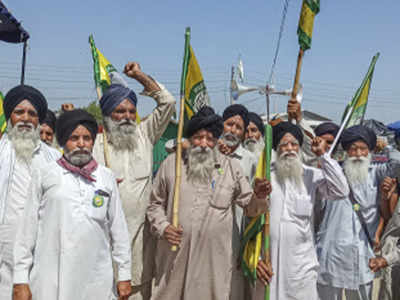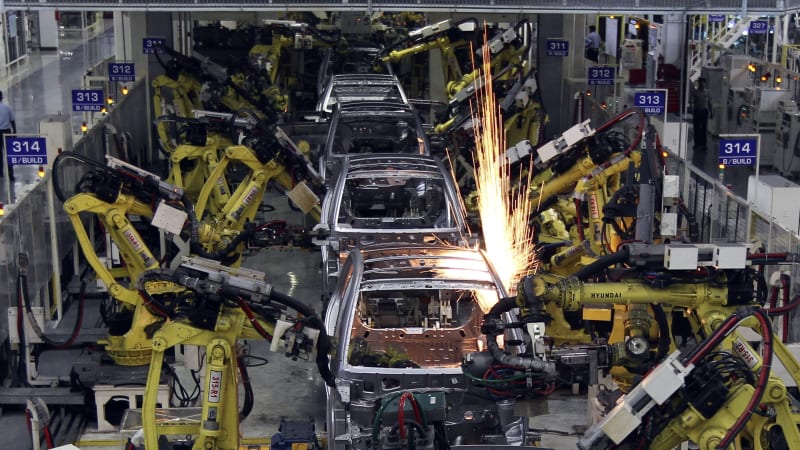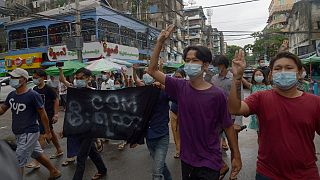Activists are taking on oil majors in court and in the boardroom, after companies proved 'completely immune' to previous attempts.
Victoria Seabrook
Climate reporter @v_seabrook
Wednesday 26 May 2021

The oil industry today faces a "day of reckoning" on its climate change policies, green groups have said, as activists takes it on in the boardroom and in court.
These "three big tests" have the potential to "change the status quo" in the fossil fuel industry, Michael Coffin, senior analyst at financial think tank Carbon Tracker, told Sky News.
Chevron, Royal Dutch Shell and ExxonMobil are all facing relatively new lines of attack from campaigners and shareholders, who are trying to force the oil majors align their targets with the Paris Agreement.
In Paris in 2015, 195 countries agreed to try to limit global temperature rise to 2°C or even 1.5 above pre-industrial levels.
Scientists warn emissions must therefore fall by about 45% from 2010 levels by 2030.
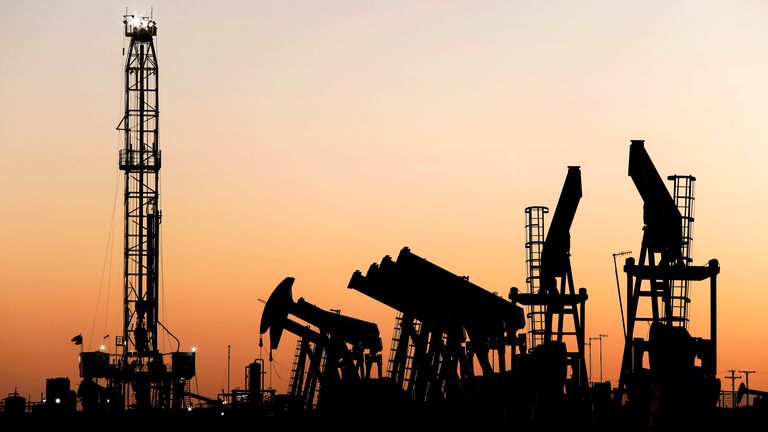
But oil majors have prioritised "net zero" rather than emissions reductions targets, campaigners say, which is why they are finding new ways to fight the companies.
Three separate campaigns come to a head today, in what has been described as "a day of reckoning" by climate think tank E3G and charity Global Justice Now.
But what exactly can we expect?
What are activist investors up to Chevron's AGM?
A climate proposal that effectively demands Chevron sets an ambitious target to slash its emissions could pass at its AGM today.
Activist investors Follow This, which filed the motion, has this year already attempted an investor rebellion at Shell, last week gaining 30% support, and at BP.
The group's founder, Mark van Baal, has been filing such motions since 2016 and believes shareholder pressure is "the only way we can change big oil".
Oil majors have "proven to be completely immune" to science and public opinion, he told Sky News in an interview.
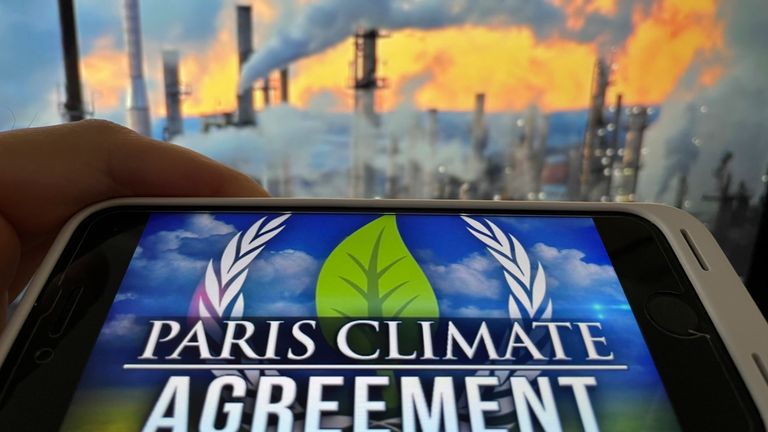
He said investors are now realising "all these investments are at risk, and therefore we are going to force the parties who can make or break the Paris climate agreement, big oil, to change rapidly.
"That's the big change which you see happening today."
Chevron did not responded to a request for comment.
Why is Shell in court?
For the first time in history a fossil fuel company could today be told in court to align its policies with the climate goals set out in the Paris Agreement.
Friends of the Earth in the Netherlands and other groups who brought the legal action are demanding Shell commits to reducing its CO2 emissions by 45% by the year 2030.
A verdict is expected at 1400BST at the District Court of the Hague.
Nine de Pater from Friends of the Earth, who is leading the campaign, told Sky News: "Because all these different social pressures that have been tried in the past did not work out, we only saw one option left and that was legal action."
Shell, which has committed to going net-zero by 2050, told Sky News in a statement that it "agreed that action is needed now on climate change", but it did not believe this would be achieved by this court action.
Friends of the Earth believes this is the first time a court has considered telling an oil major to change its policy, as opposed to, for example, provide compensation.
Will ExxonMobil's board turn one third green?
Activist investor Engine No.1 has singled out four of the 12 ExxonMobil board members it hopes to replace with directors who have "experience in successful and profitable energy industry transformations".
Shareholders will vote on the 12 positions on Wednesday morning Eastern Time.
In a statement on Monday Engine No.1 claimed ExxonMobil had for years "refused to take even gradual material steps towards being better positioned for the long-term in a decarbonizing world", and its efforts to fight off changes to the board "[spoke] volumes about ExxonMobil's future intentions".
ExxonMobil spokesperson Casey Norton told Sky News the company had "supported the Paris Agreement since its inception".
"Wind and solar power are important, but alone they cannot meet the energy needs of the key sectors (power generation, industrial and commercial transportation) that generate the vast majority of emission," he said.
Financial think tank Carbon Tracker called ExxonMobil "laggards" on climate, ranking it last in its 2020 analysis of company targets.
Dorothy Guerrero, head of policy at Global Justice Now, said shareholder revolts alone would not go far enough to "deliver justice for the communities devastated by oil companies".
"But, if successful, they too will show the tide is finally turning against fossil capital."


